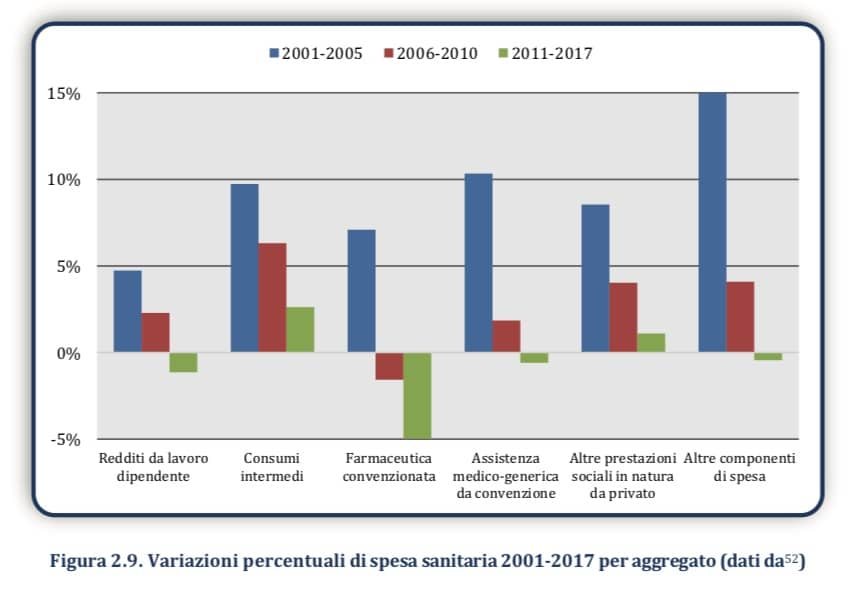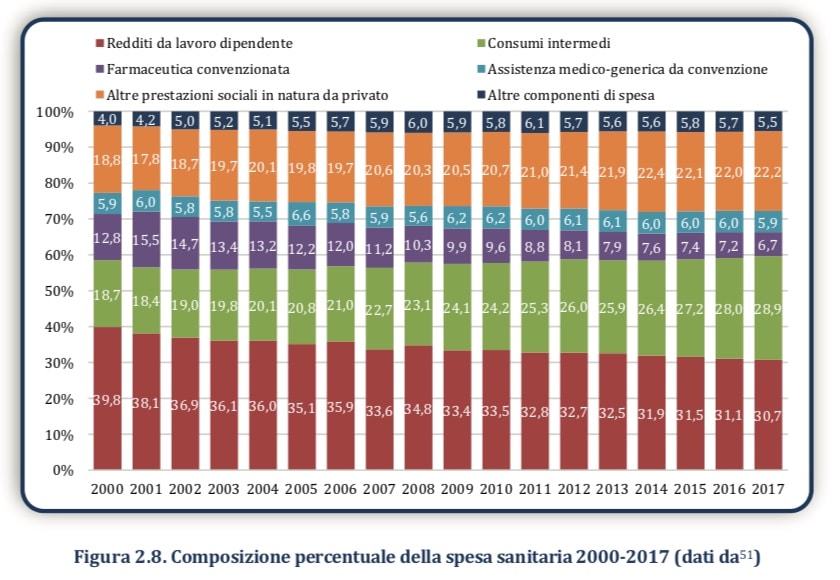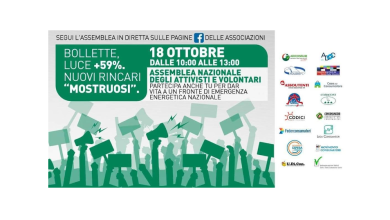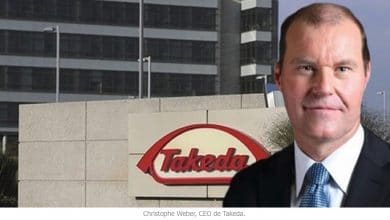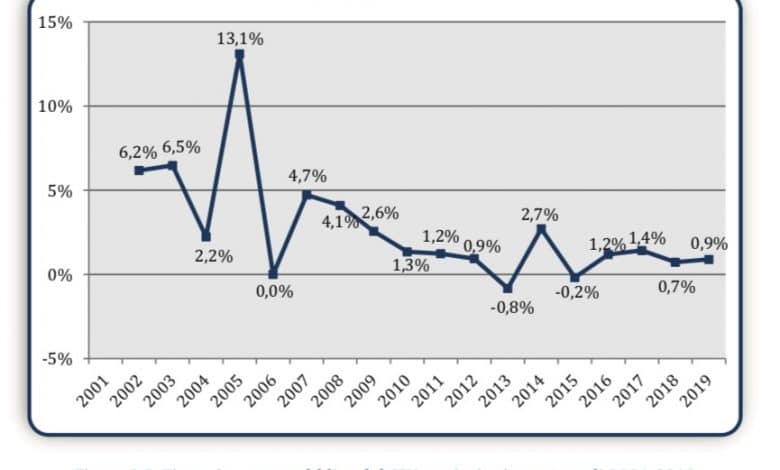
The definancing of our SSN it amounts to around € 37 billion that are missing in 2019 compared to a necessary increase that was to follow inflation, technological progress and the aging of the population with an inevitable increase in chronic diseases.
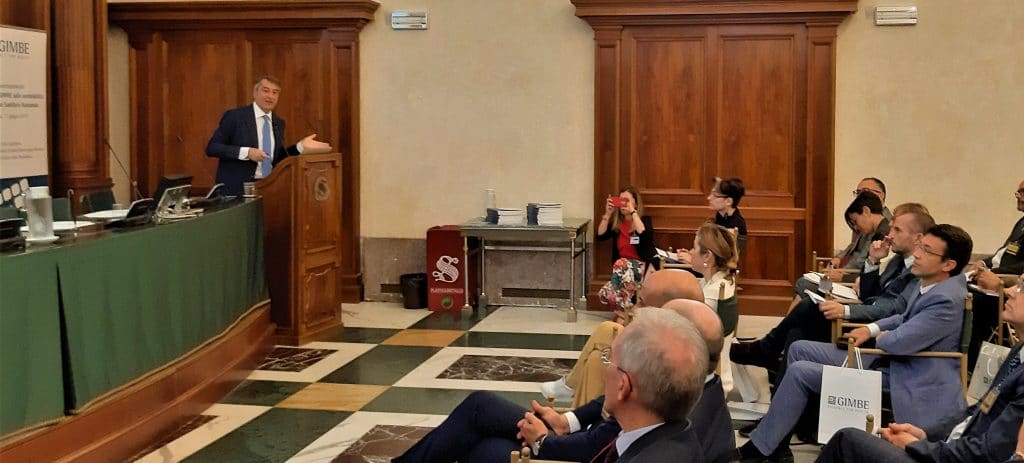 At risk also € 85 billion of the three-year period 2019-2021 which are subject to the State-Regions agreement on the Pact for Health 2019-2021 which the GIMBE refers “all uphill”! the health expenditure/GDP ratio would fall below 6.5% in 2022, believed by the World Health Organization the level below which a health system is no longer sustainable, i.e. it is unable to ensure the health needs of its population.
At risk also € 85 billion of the three-year period 2019-2021 which are subject to the State-Regions agreement on the Pact for Health 2019-2021 which the GIMBE refers “all uphill”! the health expenditure/GDP ratio would fall below 6.5% in 2022, believed by the World Health Organization the level below which a health system is no longer sustainable, i.e. it is unable to ensure the health needs of its population.
The GIMBE report also points out the problem of the failure to disburse many LEAs but above all the inequalities between the regions are pointed out. A fact that weighs heavily on the skin of the Sicilians. An example: innovative drugs are made available immediately by the Lombardy region while our region makes them available with extreme delay and practically always questioning what theAIFA (the national body) has assessed as appropriate and necessary to address specific health concerns.
In this bleak scenario we can also mention the latest council decree concerning the allocation of health resources in the Sicily region which sees as much as 2.7% of the entire health fund destined for services outside the region.
Almost €244 million flying from our pockets to other regions. Sicilian citizens evidently do not find, or worse do not believe they will find, an adequate response in the health authorities of their land. Added to this is a limited share of innovative medicines and forecasts of expenditure ceilings for some categories of medicines which will make the hospitalization of chronic patients inexorably more frequent.
It seems amateurish to think that the logic of cuts is a productive logic, but are those who think of these cuts really amateurs or is there something else? Certainly not promoting therapeutic innovation in the treatment of chronic pathologies is a loser. By now we have very effective drugs which, if known how to use, reduce health care costs as a whole, significantly reducing mortality and hospitalization. Talking about containing pharmaceutical expenditure without thinking about appropriateness is an own goal.
The inappropriateness and ineffective treatments amount according to the GIMBE report approximately €6.5 billion. For all these reasons, the prognosis, as the report reminds us, seems ominous and without a strong rationalization and organizational review of the regional health system, our region runs the risk of anticipating it by obviously continuing to donate resources to other regions given that the degree of dissatisfaction of the population is expected to grow.
Related news: Download Full Report
Related news: Healthcare, 20 million Italians pay for services out of their own pockets
The public underfunding of the NHS emerges in all its seriousness by looking at the per capita public health expenditure: we are below the OECD average ($ 2,622 vs $ 2,868) and in Europe as many as 14 countries invest more than us with a minimum gap ranging from $ 456 from Finland to a maximum gap of $ 2.777 from Norway.
The impact of the definancing in recent years emerges in a sensational way by comparing the percentage growth of public health expenditure in 2000-2008 compared to 2009-2017 (figure 3.10). In the first period, the increase was 58%, compared with an OECD average of 73%. In the period 2009-2017 the percentage increase was only 8%, compared to an OECD average of 26%: worse than Italy only Portugal (+5%), Luxembourg (-4%) and Greece (-28%).
With the progressive definancing, among the G7 countries, Italy ranks behind in terms of total health expenditure and public health expenditure, second for out-of-pocket expenditure and last for intermediary expenditure, unequivocal evidence that politics has progressively got rid of of a substantial share of public expenditure, has expanded (instead of reducing it) the "basket" of LEAs, but has not been able to implement a serious reform of supplementary healthcare to allow intermediary spending to really integrate services not offered by the NHS
From the GIMBE 2019 Report

